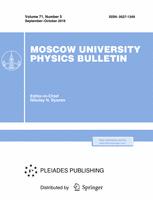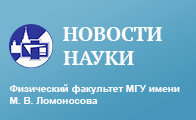Annotation
The effect of radio-telescope characteristics on the precision of pulsar timing is studied. We found a definite correlation between the accuracy of long-term pulsar time-series data, instrumental uncertainties of arrival-time timing, and pulsar-flux density. This correlation suggests that modern radio telescopes are still not sensitive enough to investigate the noise that is intrinsic to pulsars or the noise that is due to the propagation of the pulsar signal toward the solar system in the interstellar medium. The next-generation radio telescope, the Square Kilometer Array (SKA), is estimated to have an instrumental uncertainty that will be low enough to be insignificant and not affect the quality of pulsar-timing data.
Received: 2012 September 4
Approved: 2013 March 27
PACS:
95.10.Jk Astrometry and reference systems
97.60.Gb Pulsars
95.55.Jz Radio telescopes and instrumentation; heterodyne receivers
97.60.Gb Pulsars
95.55.Jz Radio telescopes and instrumentation; heterodyne receivers
© 2016 Publisher M.V.Lomonosov Moscow State University
Authors
N.Yu. Sergeeva$^1$, M.S. Pshirkov$^{1,2,3}$, Yu.P. Ilyasov$^2$
$^1$Sternberg State Astronomical Institute, Moscow State University, Universitetskii pr. 13, Moscow, 119991, Russia
$^2$Pushchino Radio Astronomy Observatory, Astro Space Center, Lebedev Physics Institute, Pushchino, Moscow oblast, 142290, Russia
$^3$Institute for Nuclear Research, Russian Academy of Sciences, pr. 60-letiya Oktyabrya 7a, Moscow, 117312, Russia
$^1$Sternberg State Astronomical Institute, Moscow State University, Universitetskii pr. 13, Moscow, 119991, Russia
$^2$Pushchino Radio Astronomy Observatory, Astro Space Center, Lebedev Physics Institute, Pushchino, Moscow oblast, 142290, Russia
$^3$Institute for Nuclear Research, Russian Academy of Sciences, pr. 60-letiya Oktyabrya 7a, Moscow, 117312, Russia



